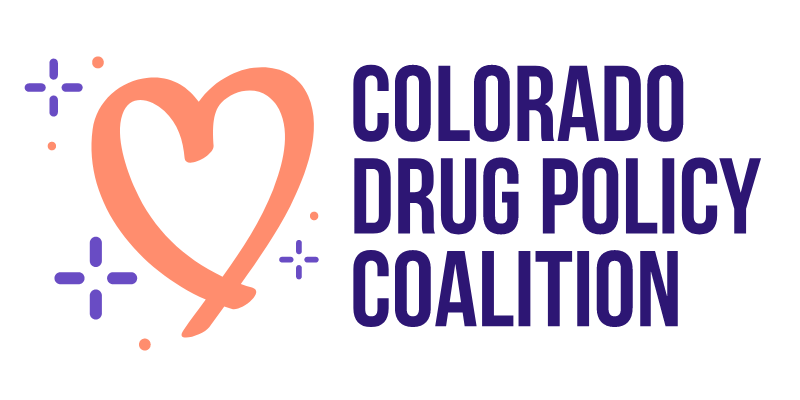BILL TRACKER: HB24-1028 was voted down in the Senate Committee on Health & Human Services on 4/18/24

HB24-1028 Authorizes life-saving overdose prevention centers in Colorado.
We can prevent overdose deaths in Colorado with HB24-1028. Overdose Prevention Centers (OPCs) are proven to save lives, make neighborhoods safer, and connect people with substance use disorders to vital services and treatment.
What are overdose prevention Centers?
Overdose Prevention Centers (OPCs) are legally-sanctioned spaces that allow people who use drugs to do so safely. In the context of a wildly unpredictable and unregulated street drug supply, OPCs simply — and importantly — keep people alive.
Participants are provided with:
sterile equipment.
supervision of trained staff.
tools to test drugs (ex. fentanyl test strips) to determine what’s in them.
Staff do not provide drugs, but they do:
answer questions on safe practices.
monitor for overdose.
administer first aid if needed.
Participants are
able to:
safely dispose of syringes.
receive health care, counseling, and referrals to services (including drug treatment) if desired.
Harm Reduction: Last Week tonight with John Oliver
“overdose prevention centers provide crucial services that keep people who use drugs as safe as possible.”
— John Oliver, Last Week Tonight
Do overdose prevention Centers work?
YES. There are over 200 OPCs¹ in 14 countries² including the U.S., Canada, Australia, Mexico, and across Europe. No one has ever died of an overdose while utilizing an OPC.
The American Medical Association recommends the establishment of Overdose Prevention Centers, and over 100 peer-reviewed studies³ show OPCs make communities safer & healthier by:
Reducing overdose deaths
Reducing syringe / drug paraphernalia litter
Reducing transmission rates of infectious disease
No increased crime in areas surrounding centers
Reducing public drug use
Saving cities money on disease prevention and emergency medical services
1 “over 200 OPCs” NYU Langone to Study Ability of Overdose Prevention Centers to Counter Unprecedented Overdose Crisis NYU Langone, 2023.
2 “14 countries” NYU Langone to Study Ability of Overdose Prevention Centers to Counter Unprecedented Overdose Crisis. NYU Langone, 2023.
3“over 100 peer-reviewed studies” Overdose Prevention Centers. Drug Policy Alliance, 2022
4”No one has died of an overdose” New statewide data shows overdose deaths have reached an all time high. ACLU Massachusetts 2023.
What people ARE SAYING ABOUT OPCS
“Studies from other countries have shown that [Overdose Prevention Centers] reduce the number of overdose deaths, reduce transmission rates of infectious disease, and increase the number of people initiating treatment for substance use disorders without increasing drug trafficking or crime in the areas where the facilities are located.”
American Medical Association
“People who stay silent or oppose [Overdose Prevention Centers] will be looked at in the long lens of history like the people who fought against sexual education in schools in the 80's and 90's. The time to be right on this issue is now.”
Svante Myrick | Former Mayor of Ithaca, NY
Source
"There is a tremendous number of Americans at risk for an overdose who will not go into treatment, or at least they're not going to go into treatment right now. If we say, 'Let's wait until they're ready [for abstinence-focused treatment],' they might be dead. I think we should see more communities start and test safe consumption sites, see what works and what doesn't, and make modifications, in order to bring these to scale.”
Dr. Brian Hurley | Medical Director, Division of Substance Abuse Prevention & Control, Los Angeles County Public Health Department Source
“Needle and syringe exchange services, overdose prevention sites and naloxone are just a few of the types of harm reduction efforts that help reduce mortality and the spread of infectious disease, but they also have demonstrated success in connecting individuals to treatment and distributing naloxone to people who use drugs.”
Patrice A. Harris | MD, former American Medical Association (AMA) President and Chair, AMA Task Force Source
OPCs: MYTH VS. FACT
MYTH: Overdose Prevent Centers are “enabling” and encourage more drug use.
FACT: Studies show that people who use OPCs are assisted into treatment at higher rates, but OPCs are not associated with the initiation of substance use among people who did not previously use drugs, or resumed use among people in recovery.
MYTH: Overdose Prevention Centers have adverse effects on surrounding neighborhoods.
FACT: OPCs do NOT lead to increased crime or drug trafficking where they are located. They DO divert drug use away from public spaces and save communities money.

Help save lives in Colorado.
Support HB24-1028.
We can save lives AND create healthier communities by providing a safe place for people who use drugs to find care and connection, without stigma or fear of criminalization.
Further Reading:
Samuels EA, Bailer DA, Yolken A. Overdose Prevention Centers: An Essential Strategy to Address the Overdose Crisis. Journal of the American Medical Association. 2022
Finke J, Chan J. The Case for Supervised Injection Sites in the United States. American Family Physician. 2022
Kerr T, Mitra S, Kennedy MC, McNeil R. Supervised injection facilities in Canada: Past, present, and future. Harm Reduction Journal. 2017
Kerr T, Stoltz J, Tyndall M, Li K, Zhang R, Montaner J, et al. Impact of a medically supervised safer injection facility on community drug use patterns: a before and after study. British Medical Journal. 2006
Potier C, Laprévote V, Dubois-Arber F, Cottencin O, Rolland B. Supervised injection services: what has been demonstrated? A systematic literature review. Drug and Alcohol Dependence. 2014
Kennedy MC, Karamouzian M, Kerr T. Public health and public order outcomes associated with supervised drug consumption facilities: A systematic review. Current HIV/AIDS Reports. 2017
McNeil R, Small W, Lampkin H, Shannon K, Kerr T.“People knew they could come here to get help”: An ethnographic study of assisted injection practices at a peer-run ‘unsanctioned’ supervised drug consumption room in a Canadian setting. AIDS and Behavior. 2014



